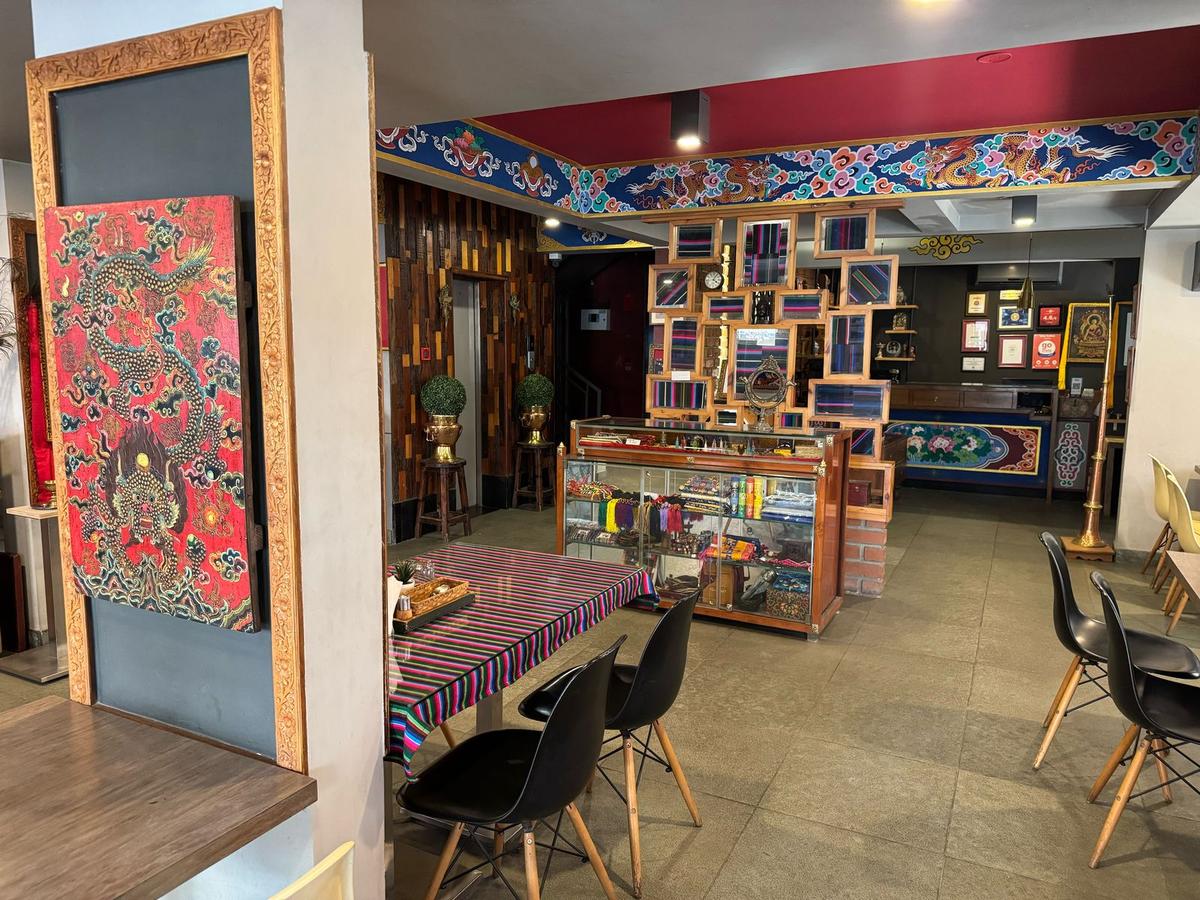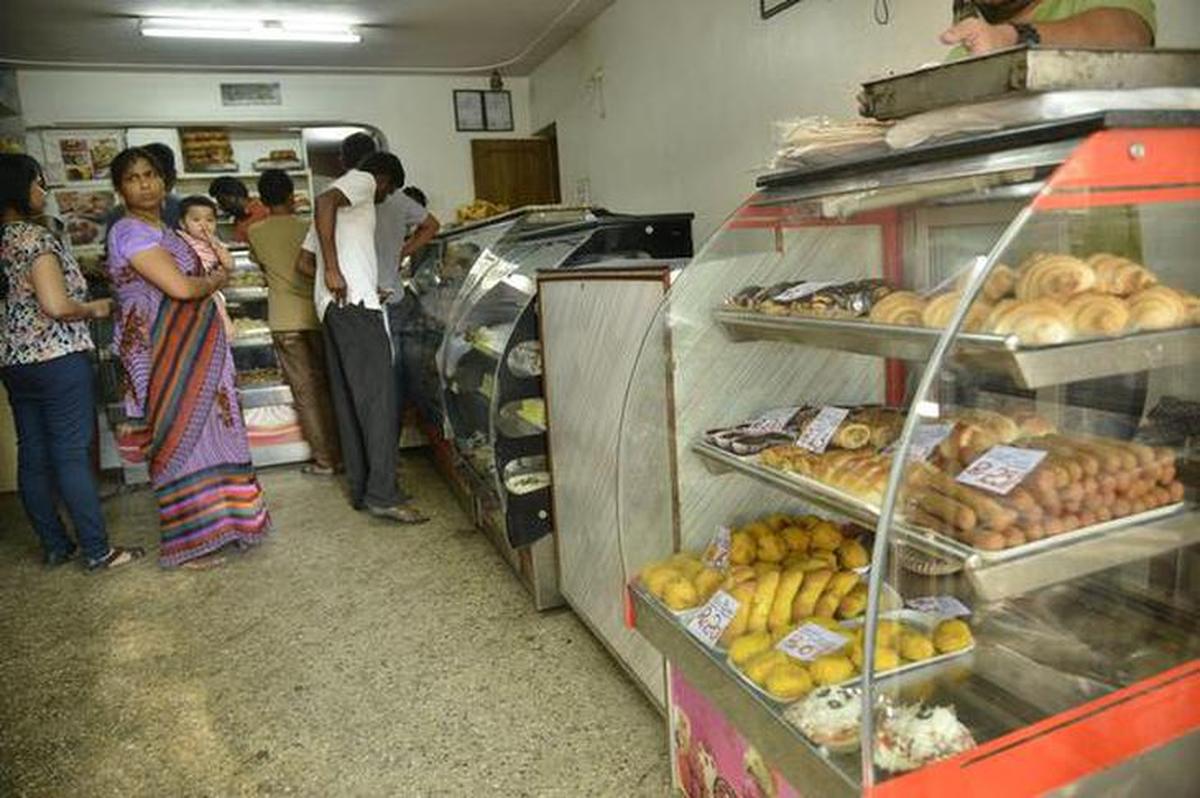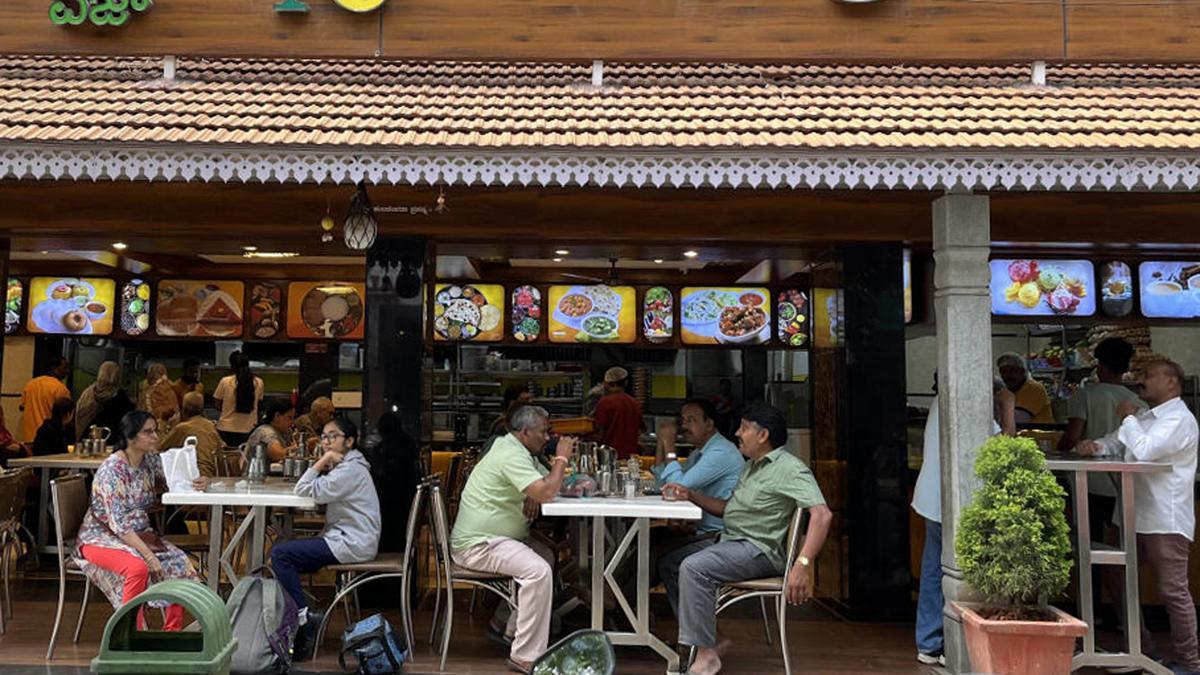Opening a cafe is a dream for many, but sustaining a restaurant business in Bengaluru is not an easy task. The city leads the way in food trends and hip new restaurants. However, it is a different story if you dig deeper. It is not all smooth sailing, especially in light of the new price hikes in coffee, milk, and gas cylinders. Across the city, small eateries, cafes, and bakeries face several challenges.
Rising costs
Udayshankar Shenoy is the chef and owner of Lazy Suzy, a popular cafe in Indiranagar. “Many places are shutting down within the next four months. We are fighting now to survive and not be one of them. Good business, profit, growth … These are far-off topics now,” he laments.
He explains how prices on the menu at restaurants are based on many factors. “We cannot decide prices on our whims and fancy. It depends on things such as raw materials, price of labour, the price of electricity and more. And then there is a margin. The profit margin is usually only about 15%. And that is also different for different dishes. A caramel custard may be 10%, while a Belgian chocolate cake that uses imported and expensive chocolate only gives you around 6%. The price of chocolate has doubled in the last eight months.”
Narasimha Rao is a retired bank manager who opened Aaha Thindi, a darshini on Cunningham Road, last year. There have been three or four restaurants that have come and gone at the location in a decade. He says Cunningham Road may be a posh and central area, but the average spending power of customers is low. Darshinis are particularly struggling with milk and coffee price hikes. Currently, they charge ₹15 for a coffee; roadside stalls offer it for ₹10.
They have not yet increased prices for these reasons, and it is the business owners who take a hit.
Why raising prices is not an easy option
“No matter what we do or say, customers have a set pattern in their minds. They feel, a microbrewery can charge such an amount of money, while a cafe can only charge only that much,” says Udayshankar.
Chef Tresa Francis transitioned from being a home caterer to running her restaurant inside the Bangalore International Centre (BIC) in Domlur. She serves home-style food from Kerala, Tamil Nadu, and Karnataka. She launched in July 2024. Hailing from Kerala, she has been in Bengaluru for almost three decades now. Her main challenge was moving from her own space to trusting others to do the cooking in a commercial set-up.
“It is difficult to find people to come and work with you if you do not come from this industry. You do not have as many contacts,” says Tresa, who used to be a corporate lawyer. For a small business like this, the cost of produce makes a big difference.
“When I started in July, the cost of one coconut was ₹25, right now it is ₹55. That is more than double. Especially for Kerala food, I use 50 coconuts a day. When I designed the menu, it was designed with that cost in mind.” Tresa changes the menu based on seasonality, for example, she is using raw jackfruit as it is in season. “This gives me more freedom to take the prices up accordingly.”
In February, she increased the prices of appams by ₹20. It used to be ₹80 and now it is ₹100. “I had someone come and point it out. But I do not have a choice.”
Service charge is a voluntary payment by the customer.
Staff woes
Many restaurants in the city provide staff with rented accommodation, medical expenses, and food. This accommodation is usually in the vicinity of the restaurant, and when it is in a location such as Indiranagar or CBD, these costs add up as well.
Dechen Belliyappa, along with her husband Sujith Belliyappa, runs Utse Kitchen on Kamaraj Road, a Tibetan and Nepali restaurant. They opened the restaurant in January 2017. Dechen says prices are increasing, not just of milk and produce, but also of meats such as mutton, which is now around ₹800 a kilogram. “We have not cut down on salaries or fired any staff. We work with what we have and do not hire new members.”
Her solution? “We cross-train our staff and cut costs in the kitchen in sustainable ways.” Most of her staff come from Nepal and Assam. A few local single mothers from the area are employed in the housekeeping department. Even if they do not come for the full shift, they do part-time shifts. The staff stay in accommodation provided by her, close to Utse.

Utse Kitchen in Kamaraj Road.
| Photo Credit:
Special arrangement
“We train everyone in different roles. So a lady in the kitchen will do housekeeping, or sometimes, if we are really busy, she helps out in service too. By cross-training staff, they ensure that staff from other departments can multi-task in the kitchen or vice versa,” she explains.
Strategies for survival
Satyendra Chaupal has been running small eateries in Bengaluru since 2013. Hailing from the Madhubani region of Bihar, he first came to the city in 2010. Before the pandemic, he had three restaurants in the Dairy Circle and Koramangala area, mainly catering to college students and office workers. These had to close due to the lockdowns. A jolly man and a follower of the poet Kabir, Satyendra did not lose hope. Today, he runs an eatery called Sparsh Grand in Koramangala that serves home-style, simple north Indian fare to residents of the area.
“I have five staff members in my restaurant currently. They all come from my village, and we all know each other back home.” He says the biggest challenge he faces is managing the staff. Everyone wants holidays at the same time, for example, when there is a festival, they all want to go home, since they are far from their families. At times like these, Satyendra resorts to his people skills. “I have a great rapport with my staff. Many of my employees return to work with me after getting other jobs, because I know the value of treating people well,” he says.
Service charge dilemma
The Delhi High Court recently ruled that service charges or tips are a voluntary payment by the customer, and they cannot be made mandatory by hotels and restaurants. In the restaurant business, the usual practice is to collect the service charge over the month, and at the end of the month, it is distributed among the staff and towards the facilities provided to them.
Most of the staff at Lazy Suzy come from Darjeeling, Manipur, Assam and Odisha. Udayshankar says, “My boys, apart from their salaries, were getting the service charge. They usually send all the salaries home, and with the service charge money, sustain themselves here.” The service charge is a huge incentive for them. “A few years ago, I was not charging service tax. For that reason, finding staff was difficult. They would ask, ‘Do you have a service charge? If not, we cannot work here.’”
The cafe has 18 staff members. In an establishment such as this, for someone making a salary of ₹16,000, they get an additional ₹2,000 in service charge. That may change if the service charge tab is removed from the bills.
Bittu K. is a 23-year-old who works as a waiter in a small eatery in BTM Layout. He says living in a city like Bengaluru is very difficult for him. He has a big family back home in Bihar that he needs to support, and the wages are not enough. He says unfair treatment from the restaurant owners and long working hours add to their distress. He has changed jobs twice in the past two years because of either the restaurant shutting down or the behaviour of the owners. He adds that many of his co-workers are in the same boat, but they do not want to talk about it as they are afraid of losing jobs.

Albert Bakery in Fraser Town
| Photo Credit:
K. Murali Kumar
Across the city, in Fraser Town, lies a legacy brand, Albert Bakery. The bakery has been dishing out khova naans and puffs for 123 years now, since it began in 1902. Sabir Faizan, who runs the family business, says, “So many of our ingredients have gone up in prices…maida, chocolate, margarine, frying oil. Eventually, we incur the costs. It is our staff that faces a lot of problems, as there is also an increase in the cost of living for them. Ongoing road work in our area has reduced the rate of walk-in customers as well.” He says just breaking even is a challenge.
About the key to surviving in the business, he says one important aspect is being content with what you have. The bakery has one outlet, and they open only at 3 p.m. They make everything fresh daily and use no additives in their products. “Even if I open ten branches, I may feel it is not enough for me. I have sustained by keeping my products simple and good.”
Chethan Hegde. Bengaluru chapter head of the NRAI (National Restaurant Association of India) says restaurants all over the State are struggling and there has been a massive slowdown in business. Announcements are made about increased costs; there is no system to it. They face competition from online aggregators, and cannot pass on the costs to the customers. “The restaurant industry is the DNA of the city. If these cost rises are not addressed soon, it will be a killer blow,” he added.
Customers, too, are facing the brunt of it. Aasaavari Mohana Gobburu is a 22-year-old college student. She says, “On a student budget, I cannot eat out more than twice or twice a month. There was a restaurant I used to frequent last year, where my average bill was under ₹500. Now, in the same place, it is around ₹800. They have increased their costs.” She feels it is not worth eating out. When there are no other options to eat in hostels or PGs, students would rather just eat a packet of chips or fast food instead.
Published – April 25, 2025 07:09 am IST
